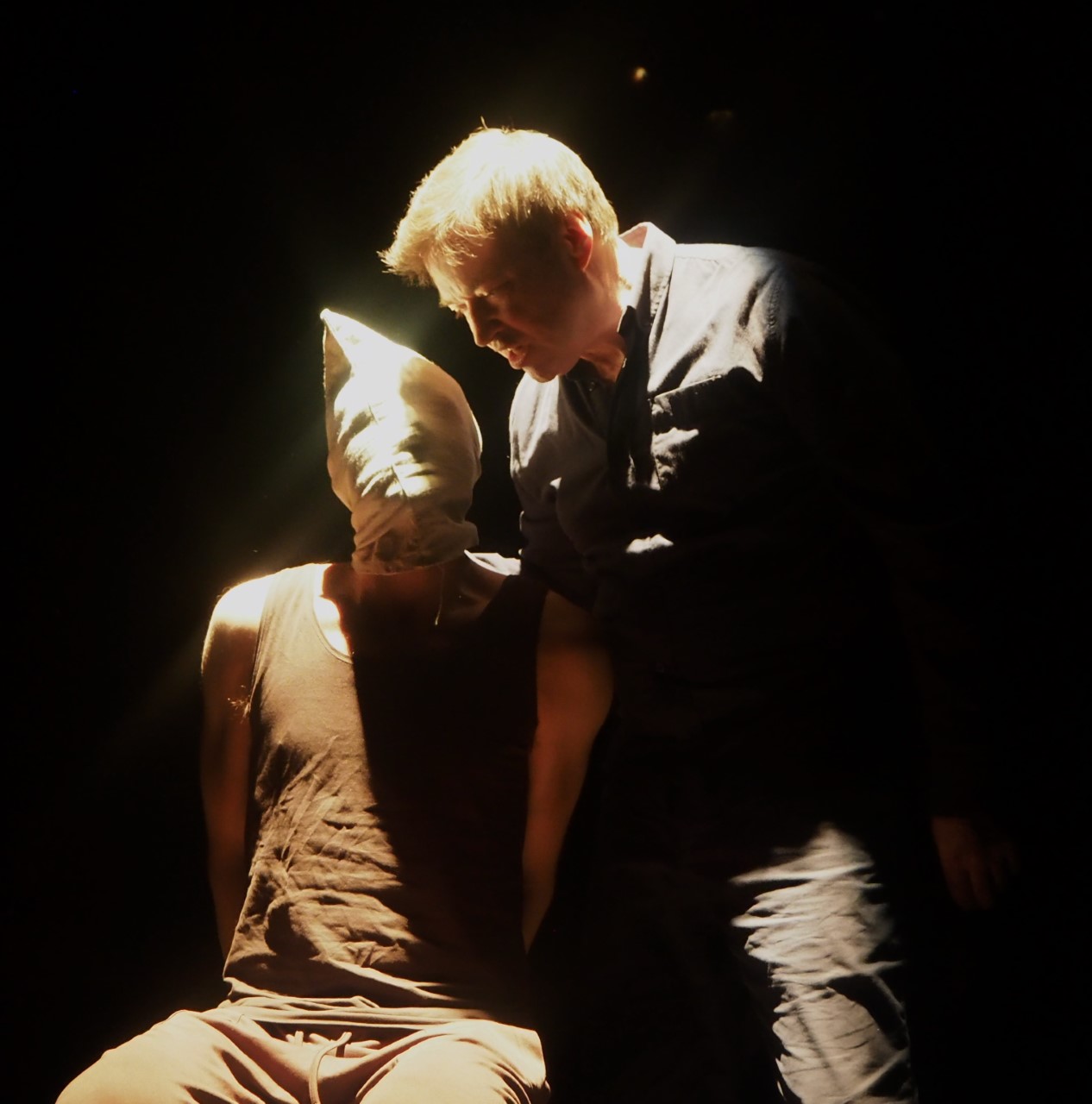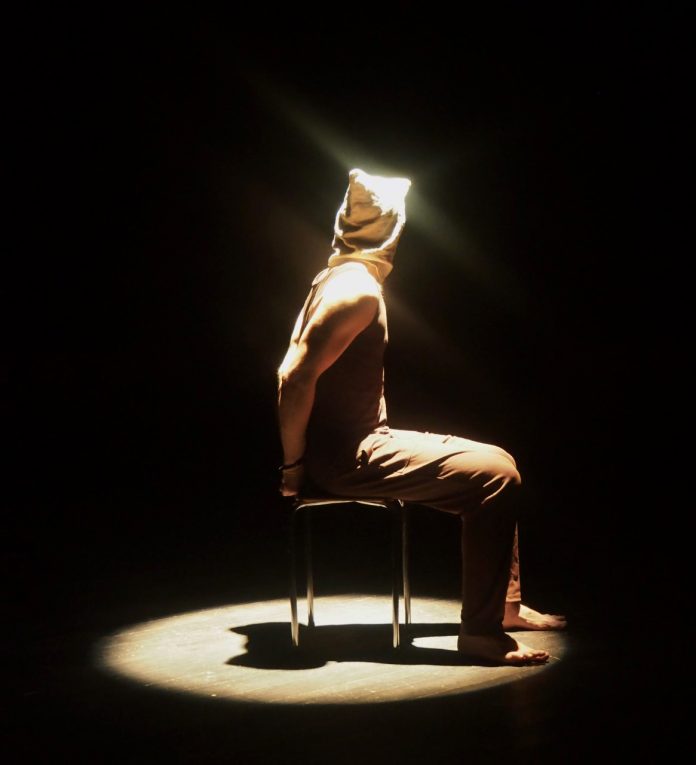(THIS ARTICLE IS MACHINE TRANSLATED by Google from Norwegian)
In 2017, the Israeli performing artist visited Einat Weizmann the festival Counter-Performances with the performance Shame, where she together with Morad Hassan documented censorship and harassment against Palestinian and Jewish artists who criticize the occupation from within.
She uses documentary theater as a tool to examine and expose some of the most illuminated and taboo consequences of Israeli segregationist policies.
Weizman says there is a war going on about the narratives or self-narratives in Israel. She wants to use her position as an artist to shed light on such, where the artist is an expert on hidden narratives and can challenge or nuance these prevailing narratives. Therefore, the artist is dangerous.
"Are you not afraid to humanize the enemy?"
In the audience conversations after the screening, Weizman would rather talk about a group that has a far more threatened existence and room for expression than the artists, the political prisoners. She told about the play Prisoners of the Occupation, which she wrote in collaboration with Palestinian political prisoners. The first version of the play had been stopped by Minister of Culture Miri Regev, because she meant it glorified terrorists.
Seriously, Israeli artists and activists are faced with the question "Are you not afraid to humanize the enemy?"
In an increasingly right-wing populist Israel, it has become legitimate to argue that human rights do not apply to Palestinian political prisoners, because they are not human beings, they are terrorists, beasts.
Weizman told about the campaign to get the poet released Feel Tatour who had been imprisoned and placed under house arrest because of a poem she published on Facebook. Weizman appealed to the audience and said that we, who live in privileged Norway, must use our position to help advance the voices of those who are less fortunate.

Since then, I have followed Weizman's process with the documentary piece about the prisoners of the occupation, read through her extensive research material and worked to set up an uncensored version in Norway – beyond the reach of the Israeli Ministry of Culture.
When Weizman showed a censored version of Prisoners of the Occupation at the Tmuna Theater in Tel Aviv in November 2019, the Minister of Culture wanted to withdraw support for this theater but was stopped by the Minister of Finance – who did not find sufficient evidence of disloyalty to the state in the play. The Minister of Culture has nevertheless succeeded in scaring the artists, so that the self-censorship is extensive.
Documentary poetry
The meeting with the imprisoned poet Dareen Tatour had a decisive significance for Weizman's work with and understanding of the prisoners' situation. When she doubted the possibility of ever staging Prisoners of the Occupation, she began in collaboration with Tatour to develop the performance I, Dareen T – which, in addition to describing the oppression in the prison, also depicts the patriarchal oppression within Palestinian society.
When Tatour is asked how she could let a Jewish Israeli represent her story on stage, she usually replies that when she met Weizman for the first time, after only three seconds she saw primarily the human being, not the Jew, or the Israeli. This is where the core of their humanistic practice lies.
The quasi-judicial cases are based on confessions obtained under torture, and end with
conviction in 999 out of 1000 cases.
Weizman was interested on a human level, and showed it through weekly visits to the house arrest. Gradually, Tatour became able to also put into words experiences from childhood – which form the starting point for the narrative. The interpersonal meeting gave room to put into words traumatic experiences that she had not told anyone before. Artistic processing can allow the dark secrets of individual life to be mirrored in the dark secrets of collective society.
The cooperation can challenge the stereotypes Israelis have about Palestinians and vice versa. The artists manage to achieve the dialogue and coexistence that the politicians cannot. Tatoor says that art is made by people, is about people and always wins in the end.

Tatour calls his poetry documentary poetry. She documents actual events in poetic form. In the poem "A poet behind the walls", she describes how the political prisoners differ from the criminals in that their crime is love, for the earth, for the country.
...those who are sick with homesickness for the fatherland, my fatherland
Those who refused to accept the injustice
like children who have their innocence violated.
They grew older, and were strengthened by oppression, like hardened roses in salty soil.
They embraced love without fear, and were condemned, not for their actions
but to declare: "Our love for this country knows no bounds."
So their love set them free.
Prison is for lovers, you understand…
A key text
One of Weizman's letters in the background material brings out particularly clearly the power of the human encounter – written by the imprisoned writer Walid Daqa to his wife Sanaa. A key text for the entire work of presenting the prisoners' stories:
I haven't stopped saying "Good morning" to the guard
Because I haven't given up being human
I'm human and I don't give up
Because every "Good morning" reminds the guard that I am human
Every "Good morning" reminds him that he is human
And if he doesn't answer
Because he is too full of fear to remember this
And if I stop with my "Good mornings"
Then his fear has overcome me and transformed me into something else
I refuse to let prison transform me or control me
I am a subject who has a will and a conscience
I refuse to be reduced to an object
This mirror I hold up in front of the guard every morning
It's going to transform him
And it is already transforming him
Daqa contacted Weizman when he heard that she wanted to write about the political prisoners. He wrote a scene especially for the play, in which he stretches the line between fiction and documentary. He describes how, after a long time in solitary confinement, he becomes so exhausted that he hallucinates and starts a conversation with himself as a little boy. How to document a conversation with a mirage?
It is in the essence of documentary theater that the material changes and develops in step with reality.
Walid and his wife succeed in conceiving a child despite the prison authorities' ban on physical contact. Smuggling out sperm, creating a new life, bringing the family forward despite the imprisonment became the ultimate symbol of resistance and hope for the future.
The story about the birth of their daughter Milad in February 2019 and how this felt like a revolutionary victory was incorporated into the performance just before the premiere in Oslo, in addition to Walid's letter to his unborn child:
Honey, do you think I've gone insane?
Because I am writing to you who are not yet conceived?
What is most insane?
– a nuclear power, fighting you, calling an unconceived child a security risk and writing about it in intelligence reports and court documents,
or the fact that i dream about you?
What is most insane?
- that I write a letter to my dream,
or the fact that the dream becomes a folder in the state archives?
What do you think?
I will continue to dream despite the bitter reality.
I will continue to search for meaning in my life,
although I have lost much of it.
Continue to look for a better future for all our children,
a future that will definitely come, sooner or later.
The quasi-judicial cases
Weizman has found various ways to circumvent the censorship. In her latest project 99,9% Convictions about the Israeli military courts, she has invited cartoonist Emi Sfard with her to defy the ban on photography, filming or sound recording. Sfard has drawn sketches from the quasi-judicial cases, which are based on confessions obtained under torture, and end with conviction in 999 out of 1000 cases.

Based on the sketches, she has reconstructed 3D animation of the court and the various actors in the court theatre. With Weizman's narrative voice, the work is published as short episodes directly online, and in this way she avoids the threats against theaters that give her space to speak.
Another way is to refer the audience to texts that are available online, but which she is not allowed to perform from the stage. The poem "Resist My People, Resist Them" for which Tatour was imprisoned is one example. Another is the poem "Steinbarna" by Shafiq Habib, which also led to the arrest of the poet due to the authorities' misinterpretation of the text as an incitement to violence.
This poem shows another side of the humanization, which is about the actual resistance to the occupation as a necessity in order to preserve one's dignity and integrity:
What is important about the stone-throwing children is that they
Bringing us rain after decades upon decades of drought
Gives us sunshine after decades upon decades of darkness
Giving us hope after decades upon decades of submission and defeat
They decided to fight as they wanted
To live as they themselves wanted
To die as they themselves wanted
Oh, the children of Gaza
Teach us their secret
Teach us to be men
Teach us to be human
The performance was directed, translated and produced by Kolbenstvedt in collaboration with Motforjeninger and Vibeke Harper. The premiere was on the Vega stage during the Human International Documentary Festival in February.
See excerpt https://www.youtube.com/watch?v=udhcGgACx0Q


